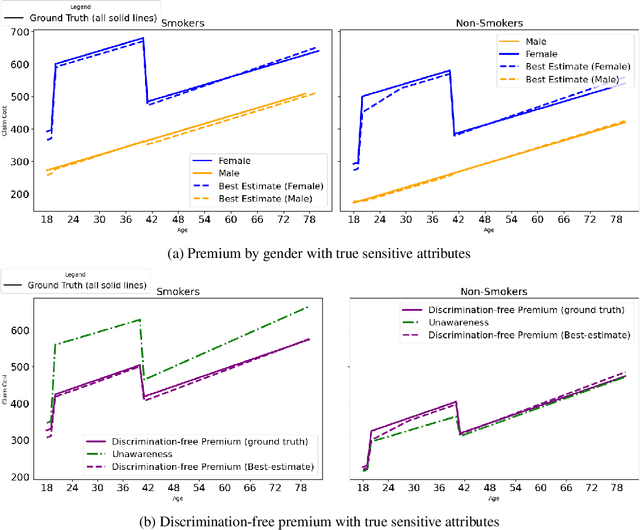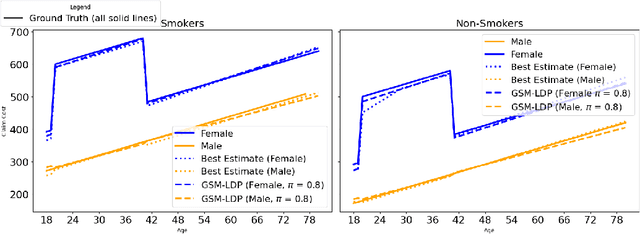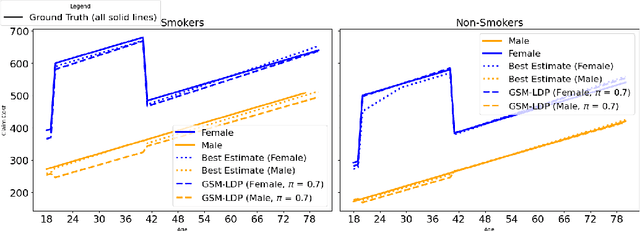Discrimination-free Insurance Pricing with Privatized Sensitive Attributes
Paper and Code
Apr 16, 2025



Fairness has emerged as a critical consideration in the landscape of machine learning algorithms, particularly as AI continues to transform decision-making across societal domains. To ensure that these algorithms are free from bias and do not discriminate against individuals based on sensitive attributes such as gender and race, the field of algorithmic bias has introduced various fairness concepts, along with methodologies to achieve these notions in different contexts. Despite the rapid advancement, not all sectors have embraced these fairness principles to the same extent. One specific sector that merits attention in this regard is insurance. Within the realm of insurance pricing, fairness is defined through a distinct and specialized framework. Consequently, achieving fairness according to established notions does not automatically ensure fair pricing in insurance. In particular, regulators are increasingly emphasizing transparency in pricing algorithms and imposing constraints on insurance companies on the collection and utilization of sensitive consumer attributes. These factors present additional challenges in the implementation of fairness in pricing algorithms. To address these complexities and comply with regulatory demands, we propose an efficient method for constructing fair models that are tailored to the insurance domain, using only privatized sensitive attributes. Notably, our approach ensures statistical guarantees, does not require direct access to sensitive attributes, and adapts to varying transparency requirements, addressing regulatory demands while ensuring fairness in insurance pricing.
 Add to Chrome
Add to Chrome Add to Firefox
Add to Firefox Add to Edge
Add to Edge